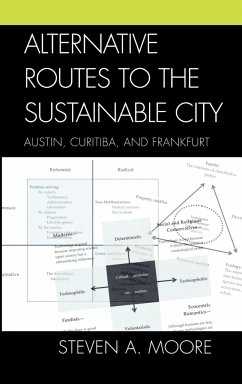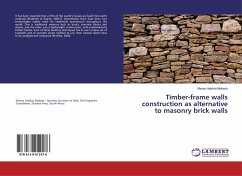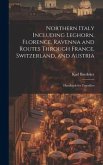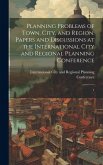Dr. Steven A. Moore investigates the exemplary cities of Austin, Texas, Curitiba, Brazil, and Frankfurt, Germany to examine how each city has approached and maintained sustainability, and thus stimulated economic growth, preserved threatened ecosystems, and improved social equity. These three cities have successfully developed different dispositions toward politics, nature, and technology, proving that there is no single abstract model or universal checklist but different approaches for different people.
Hinweis: Dieser Artikel kann nur an eine deutsche Lieferadresse ausgeliefert werden.
Hinweis: Dieser Artikel kann nur an eine deutsche Lieferadresse ausgeliefert werden.
Moore's ideas are stimulating ... the book will be of interest to Ph.D. students and professors in urban environmental planning. -- Tom Daniels H-Net: Humanities and Social Science Reviews Online With its rich discussion of philosophical and methodological foundations, its clear presentation, and its engaging narrative style, this book can be read straight through as a complete text, or piecemeal as distinct case studies, or as a source book enhanced by the generous bibliographies closing each chapter. -- April 2008 Technology and Culture This book offers a unique, pragmatic approach to questions of sustainable urbanism. By looking at three cities with different histories and politics, Moore allows the reader to see the difference between approaches to sustainability that are prescriptive and ideal, and those that are pragmatic and contextual. The book is timely and should be enormously useful to policy makers, planners and environmentalists. This is a significant contribution in a field that is still trying to find its way. -- Howard Davis, professor of architecture, University of Oregon








